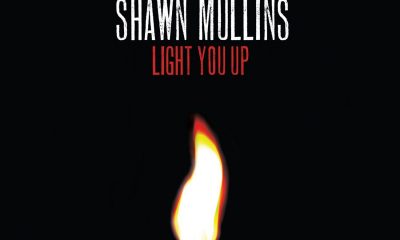Interviews
Interview with Singer/Songwriter Shawn Mullins

Shawn Mullins has crammed a lot of living into his 42 years. He was an officer in the Army’s Airborne Infantry Division, then he was a singer-songwriter, then he was a pop sensation with 1998’s chart-topping “Lullaby.” He’s performed in front of former presidents, and on Saturday and Sunday, you’ll be able to see him sing on IOTA’s stage. In between gigs, Shawn took the time to chat with us about his new record, Light You Up, an album that ranges from the sunny pop of “You Make It Better” to the moody, Guy Clark-esque “Catoosa County.”
District Noise: What’s scarier: jumping from a C-130 or performing at a presidential inauguration gala?
Shawn Mullins: (laughs) Definitely jumping out of the airplane is for sure scarier. The second jump is a lot scarier than the first time you do it, because you know what’s going on.
DN: How’d you get involved with that inauguration celebration in 2009?
SM: I was part of the party that the Clintons threw. It wasn’t really connected—it was connected because it was part of that weekend—but I wasn’t exactly on that main stage with Beyonce and everybody. It was cool. There were lots of Washington wheelers and dealers there. It was a nice honor, and I got to meet Bill Clinton, which was cool. It’s kind of crazy, the presence that he has. I thought about it when he walked into the room; of course everyone was looking at him, but even if he hadn’t been the president, I think he’d have that similar magnetic personality. He’s way taller than I thought, and just really has a presence about him. He was really kind, and thanked me for playing the party, so that was pretty cool.
DN: After the success of “Lullaby” and the stardom associated with that, you went back to being an indie workhorse. How difficult was that transition?
SM: Before the hit, there were about nine years where I was an indie workhorse. It’s not as difficult as you might think, because I was more used to it than I was to [mainstream popularity]. There are parts about it that I really liked, and I’m not completely back to where I started, because now when I play, people actually come to the shows. It’s not completely different, but the travel is similar and the [venues] are the rooms I always wanted to play. All these little venues and theaters that I’m playing, that was always where I wanted to be, so that worked out great. I never saw myself playing stadiums; I always wanted to play the good, singer-songwriter listening rooms around the country. The level of touring is similar to what it was before the big hit. There was only a three or four year period where it was a different thing, and I never let myself get used to it. I never really saw myself as being a pop star or a rock star or anything. I think it was easier when that slacked off and I got back to what I do.
DN: My favorite song on the new record is the Civil War song “Catoosa County.” How did the inspiration for that song come about? Are you a history buff?
Audio clip: Adobe Flash Player (version 9 or above) is required to play this audio clip. Download the latest version here. You also need to have JavaScript enabled in your browser.
SM: In some ways. I can’t say I’m a buff, because I don’t really know all history that well. But I grew up with a lot of Civil War history, being from Atlanta. My grandfather had told me a lot of stories about the battles in and around Georgia and family stories that were connected to it, because we go back several generations of Atlantans. Plus, when I was a child, we were playing army in the woods behind my neighbor’s backyard and I actually found a Civil War saber. It was an officer’s saber that I dug up. And over the past few years I’ve been driving up to Nashville a lot to write songs; I always pass the sign for Catoosa County and I always thought, “man, that should be in a song. Catoosa County: that sounds cool.” So I ended up looking up what happened in Catoosa County—I didn’t know much about that history. I found that it was part of the Battle of Lookout Mountain, which was just barely over the border of Tennessee. Catoosa Country is in Northern Georgia, right before you get into Tennessee, so I was like “okay, there’s a Civil War battle fought there, I like name Catoosa County, and I have this guitar riff that I really like.” And so my friend Chuck [Cannon] and I sat down and wrote the song. We wrote the verses first and the chorus came later
I’d always wanted to write one from a soldier’s point of view. I think that a lot of soldiers end up wondering what they’re doing, and there are certain things they have to hold onto to believe they’re doing the right thing—on both sides, not just our side. This would have been a soldier from the North Georgia mountains; he would’ve been a sharecropper. There wouldn’t have been slaves for a hundred miles, probably. It was a very poor Scots-Irish community. We were writing from that point of view of someone like that, who thought they were going to save whatever way of life they had, and then in the process discovering that war is what war is. The whole idea that “the blue and the gray paint the colors of the lie,” and the economic factors that foot soldiers don’t even know about…
That was an interesting song. It’s one of my favorites, too.
DN: What is the songwriting process like for you?
SM: When I write by myself it’s pretty painful. I don’t have a lot of fun when I’m writing songs by myself; I don’t know why that is. I’ve done that for a long time. I think I read that Joni Mitchell is the same way: she doesn’t get much writing done when she’s happy. When you’re happy and having a good time, why would you want to sit there and write a song? There’s stuff you want to do, you know? It typically takes a different mood for me to write by myself.
Now co-writing is a totally different animal for me, especially with Chuck Cannon, who I wrote “Catoosa County” and several others songs on the album with. We’re a really great team and a good match; we complement each other. We both get it,whatever it is, when we’re sitting there. That’s a lot of what happens when you’re co-writing. One person gets one thing, one person gets the other, and you’re not really coming together on a common idea. I think a lot of times in a co-writing situation you don’t have enough time to really get into the depths of something [in order to] write a really great song. Chuck and I will spend days and days on a song. We won’t sit there for three hours, write a song, and then it’s done. We keep tweaking it and question things that aren’t quite there yet. Writing “Catoosa County” might have taken 22 hours total, if you looked at all of the times we got together on it. This record was really more of a co-write record. The key to that was writing with the right people.
I did an interview the other day and they were like, “Wow, you wrote with all kinds of people.” Well, not really. Chuck Cannon was one, Max Gomez was another, Glen Phillips was another, but it was really mostly Chuck and I that wrote the bulk of the record. I don’t co-write that well with just anybody. It’s just as much him as it is me when we’re in a room writing, you know.
The whole melody/words thing, that’s a common question: what do you do first? I think it’s really important to work the lyric out. The melody comes so easy for me that I don’t even have to work for it, so if I let the melody happen first with chords behind it, then I’m stuck with a limited space to stick words into. If I work the words out first, the melody will fall into place behind it.
DN: You’ve got one cover on the record: “The Ghost of Johnny Cash.” What drew you to this song?
SM: I hadn’t heard a song that honored Johnny Cash in that way. It was the perfect tip of the hat to someone like him who’s been such a huge influence on rock music and country music and rockabilly and punk. Think about it: he’s like the first punk rocker ever, you know? It’s just a cool song. I liked what it said and I liked the idea of someone waking up from a dream where they died and were out on this body of water and that guy was steering the boat. I loved it, and I always wanted to write a song like that. Typically if I cover a song it’s because I wish I’d written it and I know that I can communicate it well.
DN: The title track, “Light You Up,” is really something else. Where’d the inspiration behind that song come from?
Audio clip: Adobe Flash Player (version 9 or above) is required to play this audio clip. Download the latest version here. You also need to have JavaScript enabled in your browser.
SM: I woke up one morning and the entire chorus was playing over and over in my head. I literally had dreamed this chorus. I didn’t think I dreamed it; I thought that I had heard it somewhere and my mind was playing it from memory. But I started singing it for people and they had never heard it, so I was like “I guess I thought this up somehow or it was given to me in my sleep.”
With the verses, Chuck Cannon and I stayed up all night and we were thinking that we needed to get to this chorus “I just want to light you up/Light you up like a fire.” And I had “I just want to turn you on/Lift you up and take you higher,” but Chuck was like, “No, we gotta repeat ‘turn you on’ because you had ‘light you up, light you up’ the first time around.”
Then the idea was to put together random things that we all feel like we need to have more of. It’s such a strange time because the economy is so screwed up and there are people really suffering, but at the same time it seems everyone in the country has an iPhone. That, to me, was appealing to write, just to get in on our country’s excess, consumerism, entitlement, all that stuff, and then get back to that chorus, or just wanting to make somebody feel better in a one-on-one relationship. It can be sex, even though we weren’t thinking about that when we wrote it. We were laughing the entire time we wrote the verses, just cracking each other up. It wasn’t until we each sang the song for our wives and both of them were like, (falsetto) “Ooooh!” (laughs) That’s when we got the clue that there was something else going on [in the song].
DN: I guess that’s a bonus.
SM: Heck yeah, it’s a bonus!
DN: If someone’s never been to one of your shows before, what can he or she expect this weekend?
SM: It’s an acoustic show. I’m not touring with my band, which is typical. I play such small rooms that it’s really only affordable to do it that way. I love doing that, and I’ve done it for so long that I’ve probably gotten pretty decent at it. It’s probably not unlike a John Prine show or a John Hiatt solo performance. There’s storytelling, and I try to really work out the set list to where it takes you on a bit of a journey and you go through some different moods. I play some old songs that people would know from way back when, and obviously we’ll do some stuff from the new record too.
- Lists13 years ago
Top 10 Country Music Albums of 2010
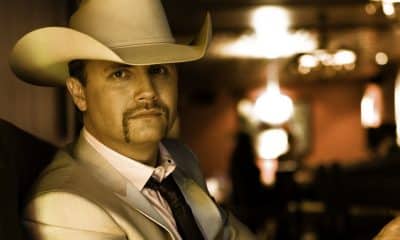
 Interviews5 years ago
Interviews5 years agoJohn Rich – The Interview
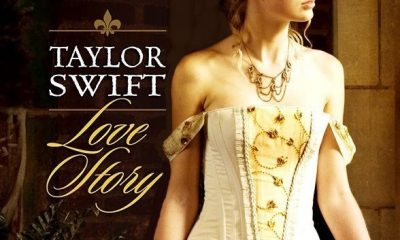
 Song Reviews16 years ago
Song Reviews16 years agoTaylor Swift – “Love Story”

 Interviews5 years ago
Interviews5 years agoHoneyhoney on Hiatus: Revisit our 2008 Interview with Suzanne Santo
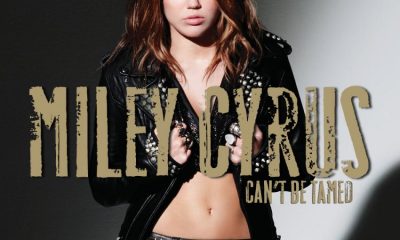
 Album Reviews14 years ago
Album Reviews14 years agoAlbum Review: Miley Cyrus – Can’t Be Tamed
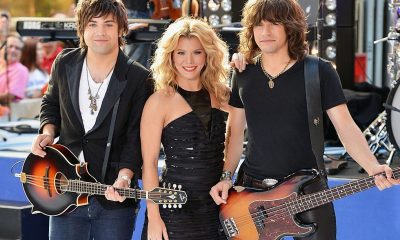
 Song Reviews6 years ago
Song Reviews6 years agoThe Band Perry – “Hip To My Heart”
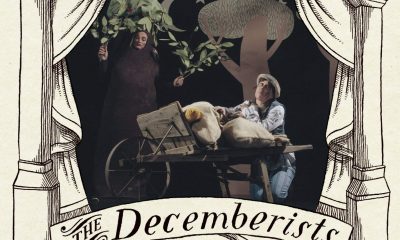
 Columns5 years ago
Columns5 years agoThe Link Between Folk Music’s Past and Present
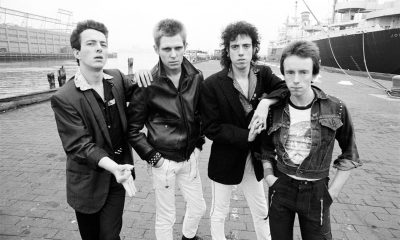
 Columns5 years ago
Columns5 years agoIs Marketing Killing Rock and Roll?


